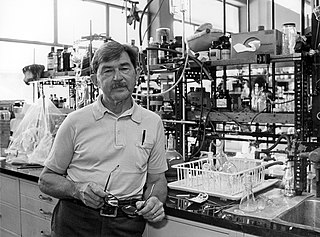A Quote by John Sulston
Science and the many benefits that science has produced have played a crucial part in our history and produced vast improvements to human welfare.
Related Quotes
Now we're living in a nuclear age, and the science that was supposed to be automatically for human welfare has become a nuclear - a science that gives us nuclear weapons. This is the ironic character of human history, and of human existence, which I can only explain, if I say so, in Biblical terms. Now I don't mean by this reason that I will accept every interpretation of Christianity that's derived from the Bible as many people wouldn't accept my interpretation. But that's what it means for me.
For society as a whole, nothing comes as a "right" to which we are "entitled." Even bare subsistence has to be produced-and produced at a cost of heavy toil for much of human history. The only way anyone can have a right to something that has to be produced is to force someone else to produce it for him. The more things are provided as rights, the less the recipients have to work and the more others have to carry their load.
Certain elements of today's ecological crisis reveal its moral character. First among these is the indiscriminate application of advances in science and technology. Many recent discoveries have brought undeniable benefits to humanity. Indeed, they demonstrate the nobility of the human vocation to participate responsibly in God's creative action in the world. Unfortunately, it is now clear that the application of these discoveries in the fields of industry and agriculture have produced harmful long-term effects.
It is critical to develop a biofuel industry powered by feedstocks produced in every corner of the country, in addition to the Midwest. That is why USDA has established five regional research centers working on science necessary to ensure profitable biofuels can be produced from a diverse range of feedstocks.
The history of science, like the history of all human ideas, is a history of irresponsible dreams, of obstinacy, and of error. But science is one of the very few human activities-perhaps the only one-in which errors are systematically criticized and fairly often, in time, corrected. This is why we can say that, in science, we often learn from our mistakes, and why we can speak clearly and sensibly about making progress there. In most other fields of human endeavour there is change, but rarely progress ... And in most fields we do not even know how to evaluate change.
Through our science we have created magnificent spacecrafts and telescopes to explore the night and the light and the half light. We have made visible things that are invisible to the unaided eye. We have brought the dreamy heavens down to Earth, held them in the mind's eye. Our explorations have produced a vast archive of remarkable astronomical images... The riches are too many for choices, the revelations beautiful and dreadful. Who can look at these images and not be transformed? The heavens declare God's glory.
This example illustrates the differences in the effects which may be produced by research in pure or applied science. A research on the lines of applied science would doubtless have led to improvement and development of the older methods - the research in pure science has given us an entirely new and much more powerful method. In fact, research in applied science leads to reforms, research in pure science leads to revolutions, and revolutions, whether political or industrial, are exceedingly profitable things if you are on the winning side.
Undeveloped though the science [of chemistry] is, it already has great power to bring benefits. Those accruing to physical welfare are readily recognized, as in providing cures, improving the materials needed for everyday living, moving to ameliorate the harm which mankind by its sheer numbers does to the environment, to say nothing of that which even today attends industrial development. And as we continue to improve our understanding of the basic science on which applications increasingly depend, material benefits of this and other kinds are secured for the future.
Science fiction is the most important literature in the history of the world, because it's the history of ideas, the history of our civilization birthing itself. ...Science fiction is central to everything we've ever done, and people who make fun of science fiction writers don't know what they're talking about.
Neoliberal violence produced in part through a massive shift in wealth to the upper 1%, growing inequality, the reign of the financial service industries, the closing down of educational opportunities, and the stripping of social protections from those marginalized by race and class has produced a generation without jobs, an independent life and even the most minimal social benefits.





































